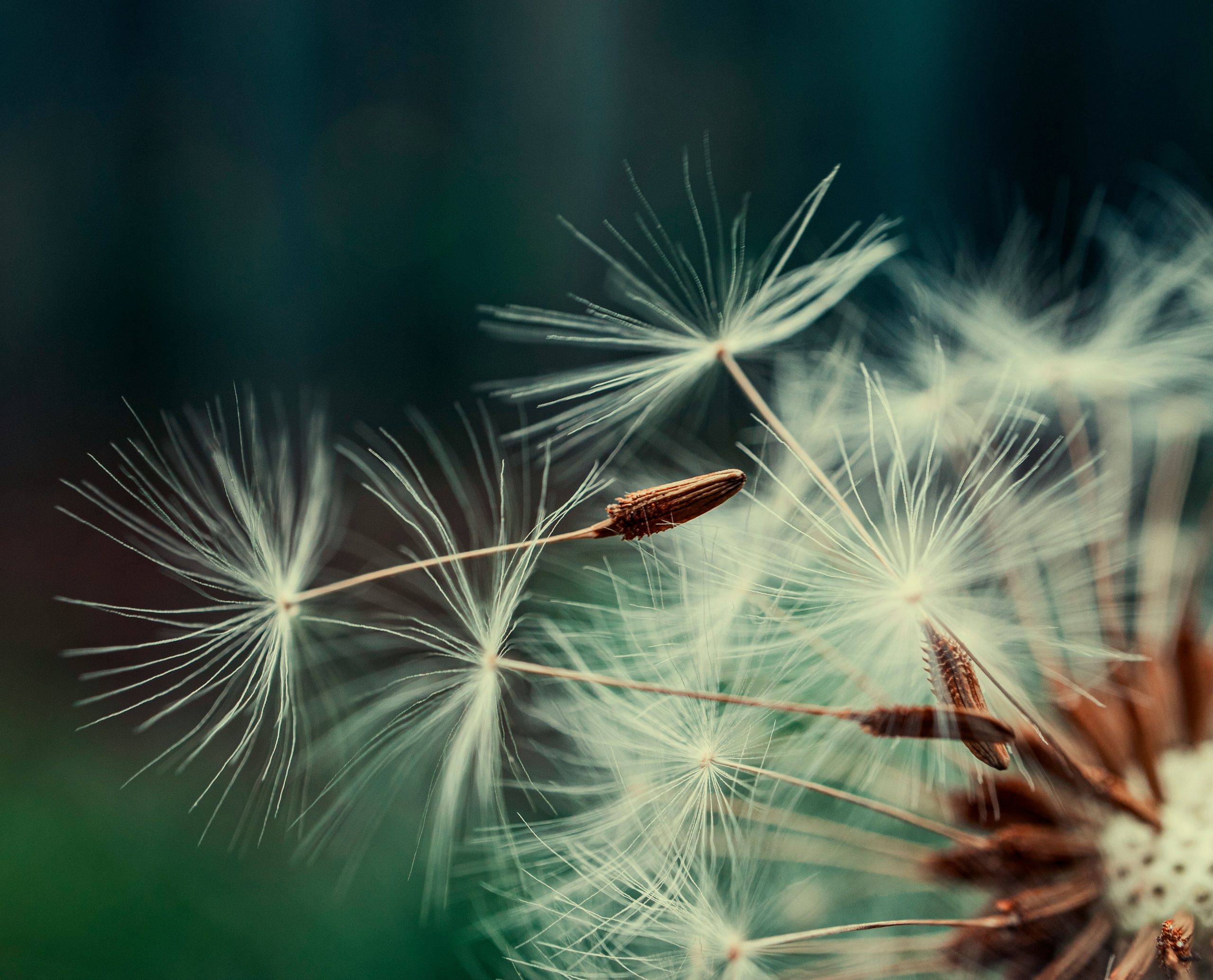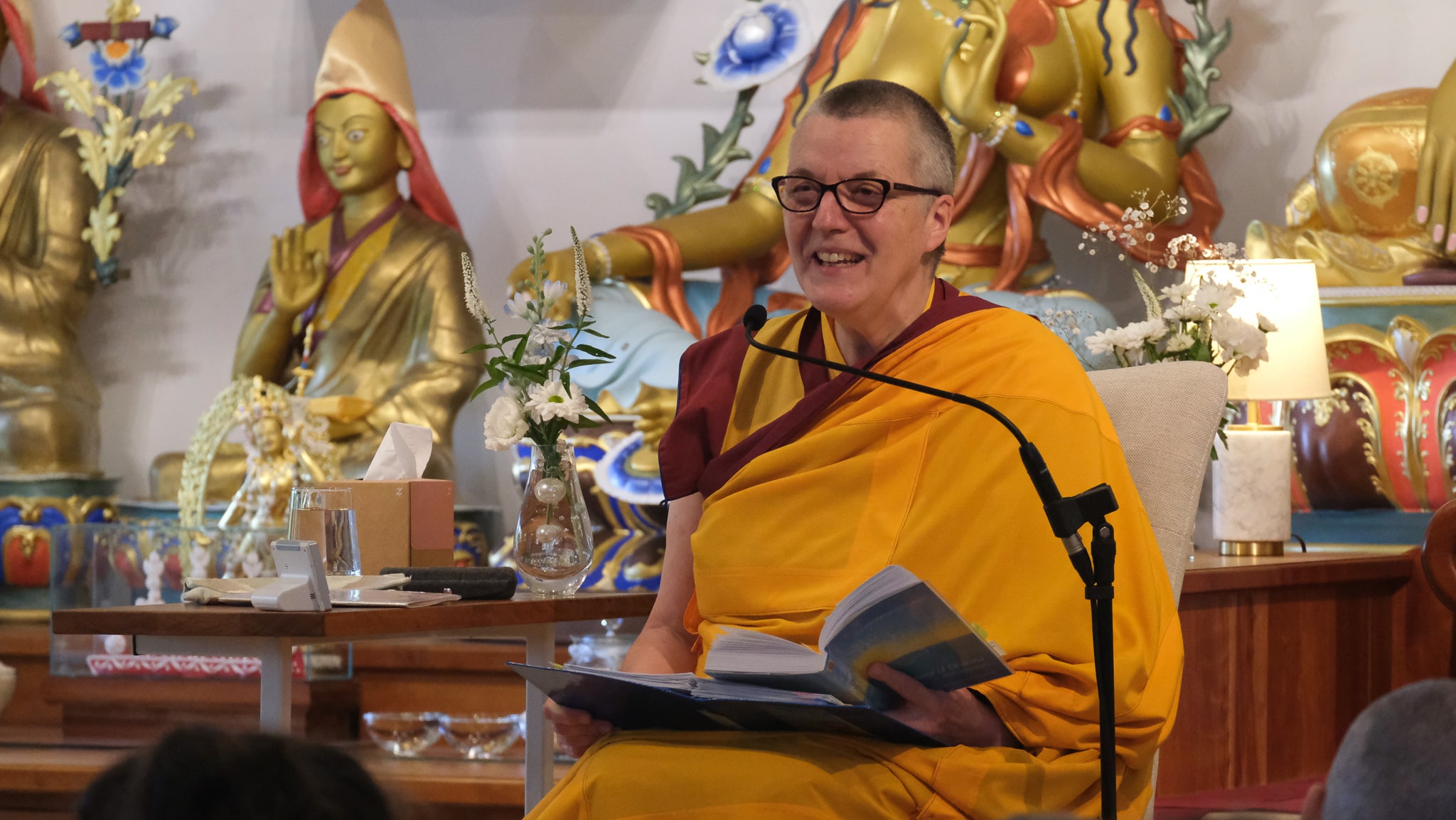Karma and Continuation
According to the late Zen master Thich Nhat Hanh, every moment is a moment of rebirth. The post Karma and Continuation appeared first on Tricycle: The Buddhist Review.

Imagine a teapot. We put some tea leaves into the pot, pour boiling water in, and after waiting a few minutes, we pour out the tea. That tea is the continuation of the tea leaves. As the tea is drunk, we can see that the tea is in us, the teacup, and the person drinking the tea. When that person who drinks the tea writes poetry or calligraphy, we can also see the tea in the poetry and calligraphy. The tea is on a journey; it doesn’t stay in one place.
When a person has a thought, it is their continuation. When that thought arises, it influences that person and their environment. The same is true of speech and bodily action: If we speak a word or perform an action, that word or action immediately affects us and our environment. In every moment, we generate energy in these three areas: thinking, speech, and bodily action. This is called karma, or action. Karma is our continuation, and continuation is rebirth. Every moment is a moment of rebirth.
We Are the Sum of Our Actions
We must see that we are not just within the boundaries of our five skandhas. We are in all our karma, all our output. Output does not only mean going out but also moving forward. All our actions of body, speech, and mind are heading toward the future. When the French philosopher Jean-Paul Sartre said that a person is the sum of their actions, he was absolutely correct. It means that a person is the totality of all their karma, of their actions of body, speech, and mind. The karma they create affects both themselves, their five skandhas, and their surroundings. We must see that a person is both within and beyond the boundaries of skandhas, just as we see that the tea is not only in the teapot: It is also in the teacup, the person drinking the tea, and the poems and calligraphy they create. These are all different manifestations, expressions, of the fruits of our action.
Taking Care of What Comes In
The teapot is a useful image, but it is not perfect. We only see the tea going out, not coming in. However, in each moment of daily life, there is both input and output. We need to acknowledge that what we receive is a form of nourishment. What we hear, see, smell, taste, and feel all enter us at every moment. For instance, if we read a newspaper article, the sadness, anger, irritation, or violence of the article goes into us. That is called input.
Input in terms of the teapot would be tea and boiling water, but in terms of a person it can include many things: the air we breathe, the water we drink, the food we eat, and the smells, images, and sounds that enter through our senses. The quality of the output depends a lot on the quality of the input. As we receive, so shall we create. If we consume a lot of violence and hatred, then what we create through body, speech, and mind will also contain these elements. If what we take in is wholesome, then what we create will be healthy. If we receive thoughts, images, and sounds that are kind, beautiful, and true, then with those materials we can create good karma for the future.
We must practice mindful consumption, guarding the six senses so that what goes into us does not harm us and become the source of harmful outputs. If we protect ourselves, the karma we create will be right karma, good karma. Guarding the six senses means placing a guardian at each sense gate—eyes, ears, nose, tongue, body, and mind—to be aware of what is entering the citadel of the skandhas. That is mindfulness. The guardian at the six gates is our mindfulness.
We must see ourselves as a cluster, not a single element; a cluster of flowers, not a single flower. All of these—karma of thought, speech, and action—are us. We are the totality of our karma.
Things that go in through our five skandhas are, in fact, just raw materials. If we have a practice, a path, we can transform whatever we receive into something beautiful. For example, if we lack wisdom and mindfulness when we watch a violent film, the energy of violence will enter us and harm us. What we produce, how we express ourselves, and how we behave will then contain those violent elements. But if we practice, our mindfulness and concentration will protect us. Those elements enter us, but we can transform them into understanding, compassion, and the path itself. It’s like the silkworm that eats mulberry leaves: When it spins silk, it does not produce mulberry leaves; it produces silk. We are the same. If we have the practice, we can neutralize the toxic elements that enter us and transform garbage into flowers.
The skandhas play an important role in our continuation. And yet, we must also train ourselves to see that we go into the future beyond the combination of the skandhas. We must see ourselves as a cluster, not a single element; a cluster of flowers, not a single flower. All of these—karma of thought, speech, and action—are us. We are the totality of our karma.
Karmic Effect
Karma can have two kinds of effect: immediate and delayed. For example, if you say something untrue, it affects you right away, but it also affects you later, after people discover that you’ve lied. You must face the consequences of that discovery. We know that things we do now can make us suffer ten or twenty years later.
When you have a thought of loving-kindness, the world profits and so do you—the effect is immediate. When you say something nice to another person, you both benefit from that loving speech. If we know how to handle our thoughts, speech, and action, we will continue to create happiness in ourselves, each other, and the world, even when our body is no longer present in its current form.
A Beautiful Continuation in the Here and Now
I live my daily life in such a way that I can go beautifully into the world. I want to think beautiful thoughts of loving-kindness, compassion, understanding, and love. And every time I have a thought, I offer myself to you—to my students, my friends, and the world. That is output; that is my continuation. I want to transform all negative inputs before I go into the cosmos, into my friends, and into my students.
You can also ensure a beautiful continuation. In the here and now, when you come back to yourself, you have the power to shape your continuation. Our continuation is not something in the future—it takes place in the present moment. Please act skillfully to ensure a good future for yourself and for future generations.
If you produced a thought yesterday that was not worthy of you, you can correct it today; you can transform that continuation. Free will is possible in the here and now. If you have right view, you will be able to produce a different thought, a thought that carries within it understanding, compassion, and nondiscrimination. The moment you produce this wonderful thought, it will go out and catch the other thought that you produced yesterday. And in the space of half a second it will be able to transform that thought.
We always have the chance to correct the past. We say that the past is already gone, but the past is always returning in a new manifestation, and we can correct it if needed. Do something different today based on right view and transform the whole situation. This is possible.
♦
Reprinted from Reincarnation by Thich Nhat Hanh, 2025, with permission from Parallax Press.

 Lynk
Lynk 


























.jpg&h=630&w=1200&q=100&v=90ed771b68&c=1)





